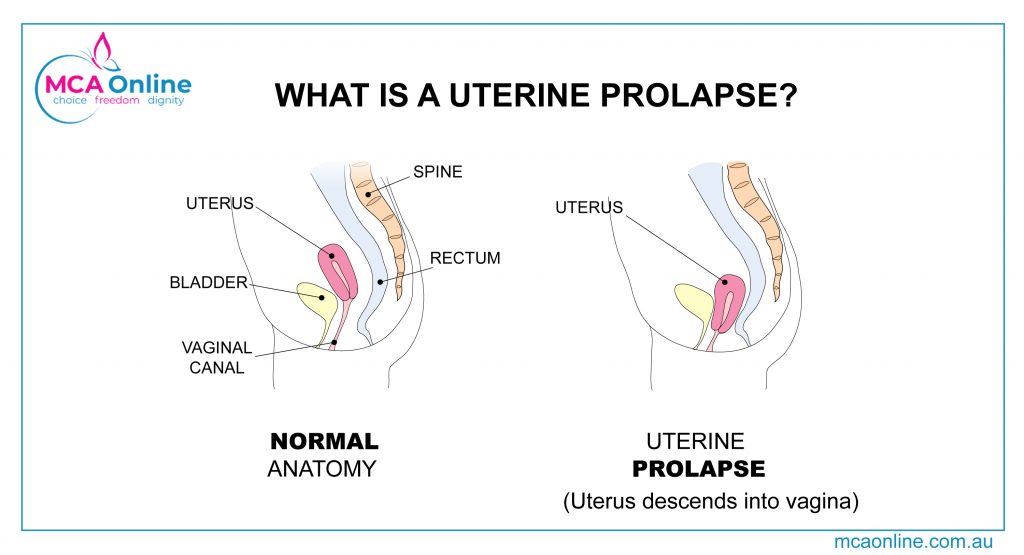So, you may have a prolapsed uterus. Yet, you’re curious about using menstrual cups. But you’re also cautious about it. Will it make your prolapse worse? Can you still use one even though your uterus is prolapsed? We explore these questions and more below.
What Is a Prolapse?
A uterine prolapse is when the uterus has fallen down into the vagina. This is frequently due to pelvic floor muscle and ligament weakness.
This condition can actually occur at any age. However, it is most common in women who:
- Have recently been pregnant
- Had a difficult delivery
- Delivered a large baby
- Are overweight or obese
- Have chronic constipation
- Have lower estrogen levels (such as after menopause)
If your prolapse is asymptomatic (meaning you have no symptoms), you’ll likely be recommended to perform irregular Kegal exercises, lose weight, or find methods to relieve your chronic constipation.
If your prolapse is more severe, you may require surgery or the insertion of a pessary, which is a rubber or plastic ring that supports the uterus.
You may be reading this article because you have an asymptomatic prolapse, or maybe you are just worried about whether or not a menstrual cup could cause a prolapse. We dive into all this and more in the section below. Let’s find out if a menstrual cup is suitable for you.

Can You Use a Menstrual Cup If You Have a Prolapse?
Many women with a prolapse have used menstrual cups, without any problems. However, it may take some trial and error. You want a cup that’s comfortable, doesn’t cause pain, fits properly, and does what it’s supposed to do.
Many women with a prolapsed uterus have found that wider and shorter cups tend to fit better (like some of our low cervix cups). These may be an excellent place to start when searching for your ideal cup. Other factors may come down to what works for you and feels best. Every woman’s body is different and what may work for a friend might not work for you. Again, it’s all about finding the right one.
Can a Menstrual Cup Cause a Prolapse?
A BBC article earlier this year ignited some buzz about whether or not improper menstrual cup use can result in a prolapsed uterus. This can easily scare menstrual cup newbies, but it doesn’t have to!
Typically, a high suctioning cup or incorrect removal of the cup may contribute to a prolapsed uterus or worsening of symptoms. When removing the cup, you should locate the stem at the base of the cup. You should then pinch the bottom, collapsing the cup, before removing it. This breaks the suction of the cup, which will prevent pulling on the uterus or other tissues. You could also consider using a menstrual disc, which doesn’t require any suction at all to stay in place.
An error many women make is that they remove the cup by pulling on the stem only. This doesn’t first break the suction, and may eventually contribute to a prolapse.
It’s also important to ensure you choose a cup that is suitable for your cervix height. If you have a long cervix, choose a longer cup. This will remove any difficulty in finding your cup and remove the temptation to pull only on the stem to remove it.
Lastly, if you have a partial or high chance of prolapse, you may want to consider avoiding cups that don’t have air holes. This style of cup can create a stronger level of suction, which, if not removed correctly, may cause pulling on the uterus or surrounding tissues.
With all that in mind, select the option that you are most comfortable with. Menstrual cups are suitable for most women with a prolapsed uterus – as long as they are used correctly. However, if you really aren’t comfortable, we would recommend you try a menstrual disc, or perhaps even period underwear.
Are you ready to find a menstrual cup that’s right for you and your body? Shop now!
